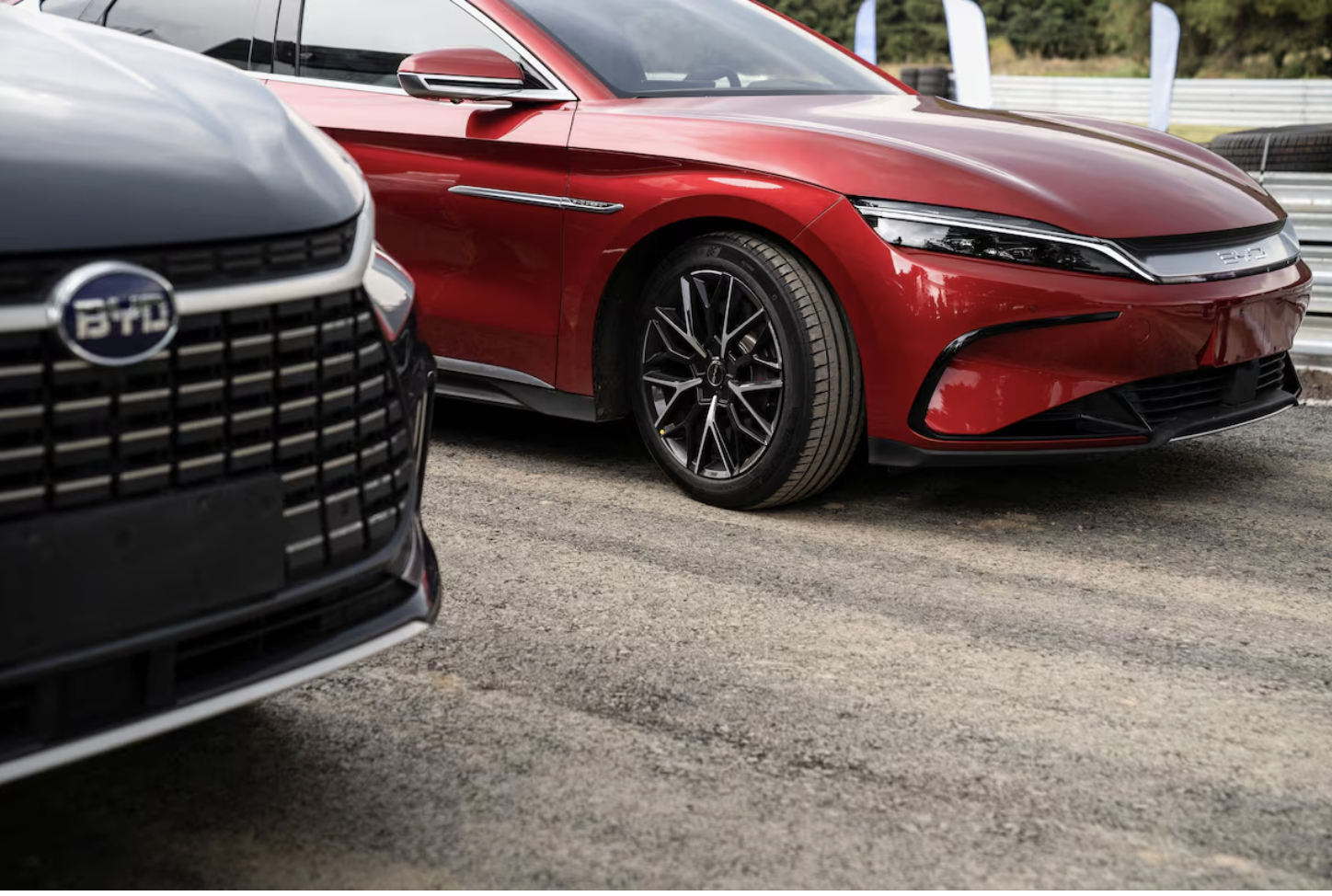
As the electric vehicle (EV) market heats up globally, Chinese automaker BYD is making significant strides overseas to challenge industry leader Tesla. Despite facing increasing barriers in the U.S. market, the Shenzhen-based company is not slowing down its international push. With a strategic focus on countries with welcoming policies towards Chinese EVs, BYD is rapidly expanding its global footprint.
In a bold move to circumvent potential policy roadblocks in key markets such as the U.S. and Europe, BYD is aggressively increasing its overseas sales by establishing production facilities in regions perceived to be more open to Chinese EVs. The company is currently developing factories in Thailand, Brazil, Indonesia, Hungary, and Uzbekistan. This strategic deployment aims to solidify BYD’s presence in markets without strong domestic auto industries, minimizing political resistance and policy-related headwinds.
- Immediate Impact: BYD’s foray into various countries has shown immediate sales success, often within a year of entry.
- Thailand’s Triumph: Surpassing Toyota in January for the top spot in passenger car sales in Thailand, BYD showcases the potential of its global strategy.
- Factory Plans: With plans to operationalize its first factory outside China in Thailand by year’s end, BYD is setting a precedent for its international manufacturing endeavors.
BYD’s strategic diversification into both hybrid and fully electric models gives it a competitive edge over Tesla, especially in emerging markets where charging infrastructure is still developing. The company’s approach of offering more affordable models alongside premium ones caters to a wider audience, boosting its appeal across various segments.
- Top-Selling EV Brand: With over 35% market share, BYD emerged as the leading EV brand in Southeast Asia last year, outpacing competitors like Vinfast and Tesla.
- Sales Figures: The company sold 70,000 electric cars in the region in a single year, a testament to its growing dominance.
Beyond Southeast Asia, BYD is expanding its reach across the globe. Plans for new factories and increased sales efforts are underway in several countries, signaling BYD’s ambition to become a leading global player in the EV market.
- Indonesia: A $1.3 billion investment for an electric car factory slated to begin operations in 2024.
- Europe and Beyond: Opening a factory in Hungary and launching production in Uzbekistan, alongside efforts to increase market presence in Australia, the Middle East, and Africa.
BYD’s Strategic Global Expansion
| Region | Initiative | Status |
|---|---|---|
| Southeast Asia | Thailand factory; Sales leadership | Factory by end of year; Sales leadership in Thailand |
| Indonesia | $1.3 billion electric car factory | Construction begins in 2024 |
| Europe | Hungary factory; Market expansion | Production starts in three years |
| Americas | Potential Mexico factory; Expansion in Brazil | Under consideration |
| Global | Diversification into hybrid and fully electric cars | Ongoing |
Despite its ambitious expansion, BYD faces several challenges, including increasing scrutiny from the U.S. government regarding the security implications of Chinese-made EVs. Additionally, the Alliance for American Manufacturing has expressed concerns over the potential impact of low-cost Chinese imports on the U.S. auto sector. However, BYD’s strategic positioning and diverse product offerings aim to mitigate these challenges and capitalize on the global shift towards electric vehicles.
- Rapid Global Expansion: BYD is actively expanding its manufacturing and sales network worldwide, with a strong emphasis on Southeast Asia.
- Competing with Tesla: By offering a mix of hybrid and electric vehicles at competitive prices, BYD is positioning itself as a formidable competitor to Tesla.
- Adapting to Challenges: Despite potential policy barriers in the U.S. and concerns over Chinese EVs, BYD is pursuing a strategic expansion to secure its position in the global EV market.
BYD’s aggressive global expansion strategy marks a significant shift in the electric vehicle industry’s dynamics. By establishing a strong manufacturing presence outside China and catering to the diverse needs of the global market, BYD is not just challenging Tesla but also setting the stage for a more competitive and dynamic EV landscape. With its eyes set on becoming a leading global EV manufacturer, BYD’s journey represents a fascinating chapter in the evolving story of electric mobility.
Related News:
Featured Image courtesy of Reuters
